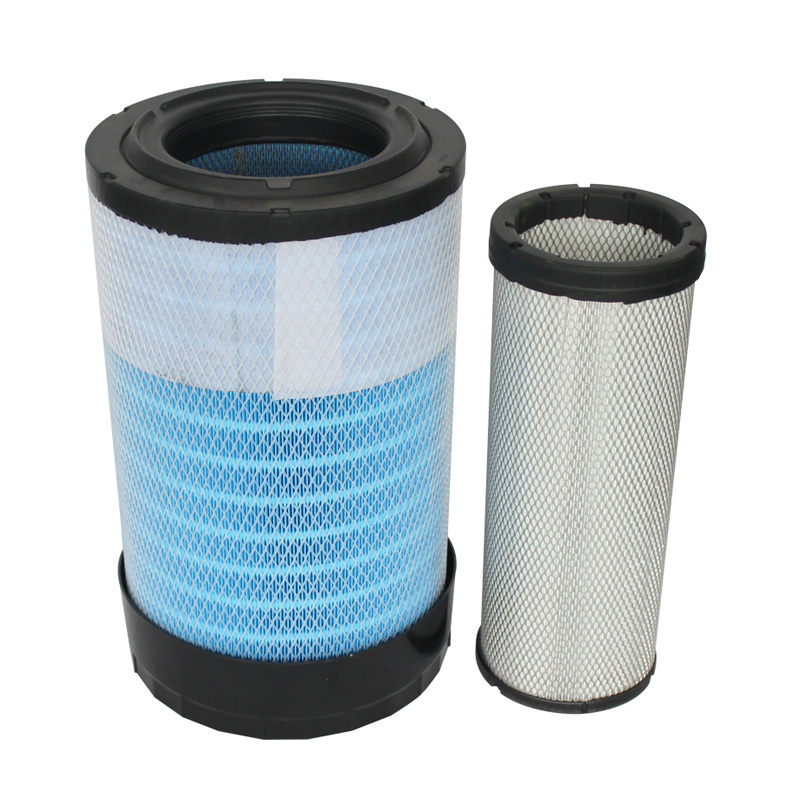Maintaining Your Vehicle: The Critical Role of a Built-In Air Cabin Filter
Jul 12,2025
Maintaining Your Vehicle: The Critical Role of a Built-In Air Cabin Filter Table of Contents Introduction to Air Cabin Filters What is an Air Cabin Filter? The Importance of Air Cabin Filters for Vehicle Maintenance How Air Cabin Filters Work Signs Your Air Cabin Filter Needs Replacement Benefits of Regularly Replacing Your Air Cabin Filter How to Rep

Maintaining Your Vehicle: The Critical Role of a Built-In Air Cabin Filter
Table of Contents
- Introduction to Air Cabin Filters
- What is an Air Cabin Filter?
- The Importance of Air Cabin Filters for Vehicle Maintenance
- How Air Cabin Filters Work
- Signs Your Air Cabin Filter Needs Replacement
- Benefits of Regularly Replacing Your Air Cabin Filter
- How to Replace Your Air Cabin Filter: A Step-by-Step Guide
- Frequently Asked Questions (FAQs)
- Conclusion
Introduction to Air Cabin Filters
In the realm of automotive maintenance, the **air cabin filter** often remains an overlooked component. However, it plays a crucial role in ensuring that the air inside your vehicle is clean, fresh, and free from harmful pollutants. Understanding the significance of a properly functioning air cabin filter can not only enhance your driving experience but also contribute to the longevity of your vehicle.
What is an Air Cabin Filter?
An **air cabin filter** is designed to filter out dust, pollen, and other airborne particles from the air entering the passenger compartment of your vehicle. Typically located behind the glove compartment, this filter works in conjunction with your vehicle's heating and air conditioning systems to ensure a pleasant driving environment. The quality of air circulating in your car directly affects your comfort level and overall health, especially during long drives.
The Importance of Air Cabin Filters for Vehicle Maintenance
The role of an air cabin filter extends beyond merely ensuring a pleasant smell inside the vehicle. Here are several key reasons why maintaining a clean air cabin filter is essential:
Enhances Air Quality
A clean air cabin filter significantly improves the air quality within the vehicle. It prevents dust, pollen, and other allergens from entering the cabin, creating a healthier environment for passengers, particularly those who suffer from allergies or respiratory issues.
Boosts Comfort Levels
A well-functioning air cabin filter maintains optimal airflow through the HVAC system. This ensures that the air conditioning and heating systems operate efficiently, providing a comfortable atmosphere no matter the weather outside.
Reduces Odors
Over time, a dirty air cabin filter can accumulate moisture, leading to the growth of mold and bacteria. This can result in unpleasant odors inside the vehicle. Regularly replacing the filter helps to minimize these odors, ensuring a fresher driving experience.
Protects Your Vehicle’s HVAC System
A clogged air cabin filter can place undue strain on your vehicle's heating and air conditioning systems. This can lead to premature wear and tear, resulting in costly repairs down the line. By maintaining a clean filter, you extend the life of these critical systems.
How Air Cabin Filters Work
Air cabin filters are constructed from several layers of materials designed to trap contaminants effectively. The filter material can vary, with some featuring activated charcoal to combat odors. As air flows through the filter, particles are trapped, allowing only clean air to enter the cabin. This process occurs continuously as you drive, highlighting the importance of regular maintenance.
Signs Your Air Cabin Filter Needs Replacement
Recognizing the signs of a dirty air cabin filter is vital for maintaining air quality. Here are some common indicators that it may be time for a replacement:
Decreased Airflow
If you notice reduced airflow from the vents, it may indicate that the filter is clogged and needs to be replaced.
Unpleasant Odors
Foul smells emanating from the air conditioning system can signal mold or mildew buildup within the filter, necessitating a change.
Increased Allergens Inside the Cabin
If passengers experience heightened allergy symptoms or respiratory discomfort, a dirty air filter may be the culprit.
Frequent HVAC System Use
If you use your heating or air conditioning system frequently, the filter will accumulate dirt and debris more rapidly, thus requiring more regular replacement.
Benefits of Regularly Replacing Your Air Cabin Filter
Investing in regular air cabin filter replacements offers numerous benefits:
Improved Health and Well-Being
By ensuring clean air circulation, you can reduce exposure to allergens and irritants, promoting better health for all vehicle occupants.
Enhanced HVAC System Efficiency
Regular replacements allow your heating and air conditioning systems to operate at peak efficiency, leading to improved fuel economy and lower energy consumption.
Increased Vehicle Resale Value
Maintaining your vehicle's interior environment can positively influence its resale value. A well-maintained air cabin filter reflects an owner's commitment to overall vehicle maintenance.
Greater Driving Enjoyment
A clean, odor-free cabin enhances the overall driving experience, allowing you to enjoy long journeys without discomfort.
How to Replace Your Air Cabin Filter: A Step-by-Step Guide
Replacing your air cabin filter can be a straightforward task. Here’s how to do it:
Step 1: Gather Necessary Tools
You will need a new air cabin filter, a screwdriver (if needed), and possibly a flashlight to help locate the filter.
Step 2: Locate the Filter
Typically found behind the glove compartment, carefully remove the glove compartment door by opening it and gently pressing the sides to release the stops.
Step 3: Remove the Old Filter
Once located, slide out the old filter. Be cautious, as it may be filled with dust and debris.
Step 4: Insert the New Filter
Pay attention to the orientation of the filter and ensure that the new one is installed correctly.
Step 5: Reassemble the Glove Compartment
Once the new filter is in place, put the glove compartment door back, ensuring it is properly secured.
Step 6: Test the System
Start the vehicle and turn on the HVAC system to confirm that airflow is restored and that the air quality has improved.
Frequently Asked Questions (FAQs)
1. How often should I replace my air cabin filter?
Typically, you should replace your air cabin filter every 12,000 to 15,000 miles, but check your vehicle’s owner manual for specific recommendations.
2. Can I clean my air cabin filter instead of replacing it?
While some filters can be cleaned, most are designed for single use. It’s generally more effective and simpler to replace the filter.
3. Will replacing my air cabin filter improve fuel efficiency?
Yes, a clean air cabin filter allows your HVAC system to operate more efficiently, which can help improve overall fuel economy.
4. Are aftermarket air cabin filters better than OEM filters?
Aftermarket filters can vary in quality. It's advisable to choose reputable brands that meet or exceed OEM specifications.
5. Can a dirty air cabin filter affect my vehicle's performance?
Yes, a clogged air filter can lead to reduced airflow in the HVAC system, impacting comfort and potentially leading to system strain.
Conclusion
The **air cabin filter** is an essential yet often overlooked component of your vehicle's maintenance routine. By understanding its critical role in promoting clean air, enhancing comfort, and protecting your vehicle’s HVAC system, you can make informed decisions regarding its upkeep. Regularly replacing the air cabin filter not only improves the quality of air in your car but also contributes to your vehicle's overall longevity and performance. Prioritizing this simple maintenance task will lead to a healthier, more enjoyable driving experience for you and your passengers.
TAG:
PREVIOUS:
Contact Us







